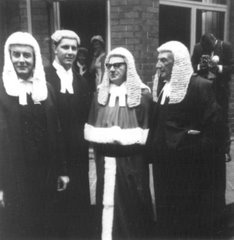(This book is amazing. I've read it three times while never making a dent in the more famous Treatise Concerning Human Nature.)
2. On Liberty, by John Stuart Mill
(Also wonderful is Mill's autobiography, although I've never been able to get through Utilitarianism or any of his other books.)
3. The Varieties of Religious Experience, by William James
(Again, much more approachable than either Pragmatism or Principles of Philosophy. I also recommend the Talks to Teachers and Students.)
4. The World as Will and Idea, by Schopenhauer
(I've actually only read the abridged edition from Will Durant. So there goes my credibility.)
5. Unto This Last, by John Ruskin
(Beloved of Gandhi, Tolstoy, and Proust! Now famous largely for being terrified of his wife's naked body and refusing to have sex with her. Bizarre proclivities aside, I like Ruskin a lot. I think people will start reading him again one of these days.)
6. The Captive Mind, by Czeslaw Milosz
(So good, especially the central chapters about individual artists.)
7. The Need for Roots, by Simone Weil
(Like Ruskin, her books are -- to modern eyes -- equal parts silly and profound, but they stay with you more than any number of works by more reasonable people.)
8. Walden, by Thoreau
(Low on the list because Thoreau is an infuriating writer. It is impossible to pin him down to any position at all. But he succeeds beautifully on the sentence level while failing, continually, as a communicator of ideas.)
9. Freedom and Beyond, by John Holt
(Out of print for decades, but easy to find in good libraries and very worthwhile.)
10. Four Essays on Liberty, by Isaiah Berlin
(I find his least philosophically "important" essays the most interesting, cf. the biographical sketch of Mill and the one on the birth of Greek individualism, collected in the big volume called Liberty.

No comments:
Post a Comment